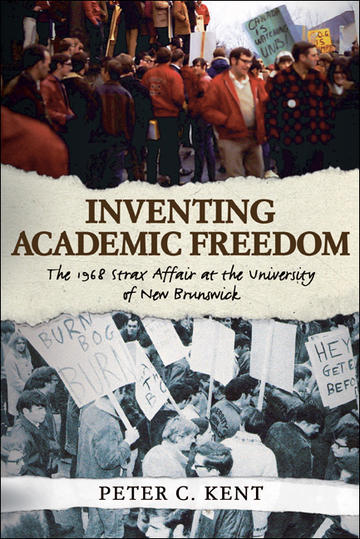In 1968, there was political ferment everywhere. In Paris, students were in the streets. In the U.S., civil rights, the Vietnam War, and protests against the draft brought out millions. In this atmosphere, a young Jewish-American professor in the quiet town of Fredericton, New Brunswick sparked a controversy that established the principles of academic freedom on Canadian campuses.
Norman Strax was an unlikely figure in a conservative town with a sleepy university campus. He didn't dress like other faculty members, he drove a funny car, and he didn't socialize much with his colleagues. The university president, Colin Mackay, was a young scion of the local establishment who ran the university as if it belonged to him. With his links to Lord Beaverbrook, the Irvings, and the provincial government, he was confident of support for his paternalistic way of doing things.
When Strax and some students protested a new library regulation, Colin Mackay abruptly suspended Strax from his teaching position. A sit-in followed, and the university dragged Strax into court. Before long, the provincial government and the judiciary were involved. So were university professors across Canada. In the end, the Strax Affair was the catalyst for a new approach to governance at Canadian universities and was key to establishing the principles of academic freedom.
PETER C. KENT was at the centre of the Strax affair as assistant to the president at the University of New Brunswick. For this book, he has interviewed many of the key participants as well as undertaking extensive archival research. A former dean and professor of history, Kent's area of speciality is the history of modern Catholicism. He lives in Fredericton, New Brunswick.



